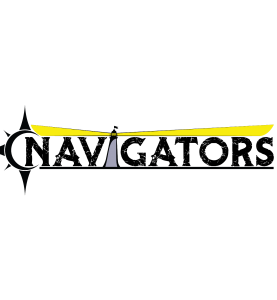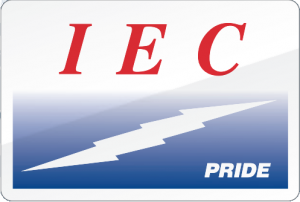If you’re passionate about electricity and troubleshooting things, a good electrician school can prepare you for a rewarding career.
According to the Bureau of Labor Statistics, the mean annual wage reported by electricians in Utah was $57,200 as of May 2021.
Salaries range from less than $36,350 to more than $79,780 depending on experience level, local economy, and a variety of other factors.
Before being ready to apply for your first electrician job you have to complete some specialized training at a community college, trade school, or through an apprenticeship.
Some programs take less than two years to complete, while others are more than four years long.
To help you choose the format that best meets your needs, on this page we have compiled information about the best electrician schools in Utah.
1Mountainland Technical College
About the School
Mountainland Technical College offers affordable education through hands-on training programs.
More than 50 programs and courses are available.
Mountainland Technical College serves students in Utah, Wasatch, and Summit Counties.
The college has 11 campuses, including Lehi, South Orem, West Orem, West Salt Lake City, and Herber City.
Courses Offered
Among many other programs, the Mountainland Technical College features an Electrical Apprenticeship.
Adults and high school seniors are eligible for registration.
The program can be completed in four years and is available in Lehi, Orem, Spanish Fork, and at the Wasatch campus.
Students who participate in the traditional evening classes attend classes twice per week during the Fall and Spring semesters.
Starting in 2021 the program will also offer daytime accelerated classes.
A daytime semester equals two evening semesters.
Daytime classes cover only the first and second-year curriculum.
High school students can enroll in daytime classes but are not eligible for evening classes.
Tuition varies depending on the level of study and the program.
Tuition and fees for the Daytime Electrical 1A/1B program sum up to $788.
Tuition and fees for Daytime Electrical 2A/2B sum up to $748.
Contact Information
- Address: 2301 West Ashton Blvd, Lehi, UT 84043 (Main Campus)
- Phone: 801-753-6282
- Website: https://mtec.edu
2Ogden-Weber Technical College

About the School
Ogden-Weber Technical College offers hands-on training for those who want to start new careers.
The college’s catalog covers a wide range of areas of interest, from Business and Computer Technology, to Construction, Health, and Manufacturing.
Courses Offered
Electrical Trades Preparation and Electrician Apprentice Related Instruction are available at the school.
Among other topics and skills, students learn about safety, tool use, regulations, motor controls, direct current theory, basic residential wiring, and solar power.
The Electrical Trades Preparation program provides students with hands-on experience that prepares them for electrical apprenticeship programs.
This program is 11 months long and includes 240 hours of training.
The Electrician Apprentice Related Instruction program is designed for working electrical apprentices and complements the hands-on on-the-job training part.
This program can be completed in 32 months and includes 720 required hours.
Contact Information
- Address: 200 N Washington Blvd, Ogden, UT 84404
- Phone: 801-627-8300
- Website: https://www.otech.edu
3Dixie Technical College

About the School
Dixie Technical College helps students to enter the workforce quickly by teaching them only the skills needed for their career of choice.
Students who attend classes at the college receive a significant part of hands-on training.
Accredited programs are available in computers, construction, healthcare, industrial, transportation, and the service industry.
Although costs vary depending on the program and the duration, the average cost of a program at Dixie Tech is $3,000.
The application fee is $40.
Several financial aid options are available.
Courses Offered
The college has a Construction Technology pathway that includes an Electrical Residential and an Electrical Commercial program.
Electrical residential apprentices need 4,000 hours of paid on-the-job training as licensed apprentices and 360 classroom instruction hours.
Among many other topics, students learn about dwelling load calculations, mathematics for pipe bending, the theory of AC circuits, inductive and capacitive circuits, and navigating NEC.
The commercial program covers motor calculations, grounding and bonding, motor control wiring, blueprint reading, and conductor sizing.
Contact Information
- Address: 610 S Tech Ridge Dr, St. George, UT 84770
- Phone: (435) 674-8400
- Website: https://dixietech.edu
4Granite Technical Institute

About the School
Granite Technical Institute aims to make the transition to higher education easier for high school students.
A variety of pathways of training are available to support student growth from the 9th to 12th grades.
Courses Offered
An Electrical Trades Concurrent Enrollment College Courses Year is available for students in grades 10-12
Students are engaged in rough and finish wiring, electrical service, phone, and data work.
During the training period, they participate in hands-on projects.
Additionally, students also learn the National Electrical Code and Electrical Theory.
The curriculum includes classes on:
- Current National Electrical Code
- Residential Electrical Wiring
- Ohms Law
- Power and Hand Tools
- Conduit Bending
- Blueprint Reading
The class is designed for students who are interested in the electricity field and for those who want to be part of basic electrical installations and remodeling.
The course may be taken for SLCC concurrent enrollment by students in grades 11 and 12 who qualify.
Contact Information
- Address: 2500 South State Street, Salt Lake City, UT 84115
- Phone: (385) 646-5000
- Website: https://schools.graniteschools.org/gti
5Bridgerland Technical College

About the School
Bridgerland Technical College offers an Apprentice Electrician program,
Students receive training in national and state codes, material requirements, practical mathematics, and other essential subject areas.
The Apprentice Electrician program includes two parts:
- on-the-job training provided by the apprentice’s sponsor
- classroom-related instruction that provides students with knowledge about the theoretical and practical aspects of their craft
Apprentice Electricians must register for licensure with the Utah State Division of Occupational and Professional Licensing.
Apprentice Electricians must:
- Be at least 18 years of age or 16 if registered through the United States Department of Labor Office of Apprenticeship
- Obtain an employer for the apprenticeship
- Complete and submit an application
Residential Journeyman Electricians must meet the following requirements:
- Complete two years (4,000 hours) of on-the-job training
- Complete four semesters (360 hours) of classroom instruction.
Journeyman Electricians need to complete:
- Four years (8,000 hours) of on-the-job training
- 720 hours of apprentice education
Contact Information
- Address: 1301 North 600 West, Logan, UT 84321
- Phone: 866-701-1100
- Website: https://btech.edu
6Salt Lake Community College

About the School
Salt Lake Community College offers certificate and degree programs in eight areas of study.
The college is a member institution of the Northwest Commission on Colleges and Universities.
Tuition is $312.25 per credit hour for resident students.
Apprenticeships cost $175.75 per credit hour.
Courses Offered
The college’s Construction, Manufacturing, and Applied Technologies area of study include an Electronics Engineering Technician and an Energy Management program.
The Electronics Engineering program covers the basic theory, laws, and circuits, fundamentals of AC/DC, solid state, and digital electronics.
Students also learn how to use test equipment.
The program covers electronic components, how they function, and how to test devices.
A certificate of completion requires 959 hours.
Tuition for this program is approximately $2,215.
Additional costs bring the total to $3,226.
The program is divided into several payment periods, each consisting of 10 weeks, except for the final one, which is variable in length.
Contact Information
- Address: 4600 South Redwood Road, Salt Lake City, UT 84123
- Phone: 801-957-7522
- Website: http://www.slcc.edu
7Mountain Crest High School

About the School
Mountain Crest High School offers career and technical education in computer programming, electronics, engineering principles, engineering technology, computer science, robotics, video technology, and production.
Students need one and a half technical credits for graduation.
They must take the required Computer Technology and Exploring Computer Science for one half-credit.
The other technical credit may be earned by taking any technical class.
Students are encouraged to take classes that fit their educational plans and career goals.
Courses Offered
An Electrical Engineering class is also available as part of the Technology and Engineering pathway.
The Electronics I class is available for students in grades 9-12.
The Electronics II class is for students in grades 10-12.
The Electronics class covers electrical theory, parallel and serial circuits, schematic diagrams, electrical components, and soldering, among many other topics.
Contact Information
- Address: 255 South 800 East, Hyrum, UT 84319
- Phone: (435) 792-7765
- Website: https://www.ccsdut.org/mountaincrest
8Utah Tech University

About the School
Utah Tech University offers hands-on learning and career readiness programs.
The university is located in the heart of St. George.
According to its website, Utah Tech University has the lowest tuition for all four-year state institutions in Utah.
Tuition and fees sum up to $253.12 per credit hour.
Utah Tech University is accredited by the Northwest Commission on Colleges and Universities since 1945.
Courses Offered
An Electrical Engineering Bachelor of Science program is available for students who are interested in electricity and power.
The program covers topics regarding power, electronics, signal processing, and electromagnetics.
Students who attend this program are equipped with the skills needed to design, analyze, and build electrical, electronic, and electromechanical systems.
The curriculum is designed to prepare students for Utah licensure and certification requirements.
To qualify for admission, students must complete the following courses with C or better grades: mechanics, math, chemistry, and physics.
The program curriculum includes 123.5 credits and covers courses such as:
- Principles of Chemistry
- Semiconductor Devices
- Microelectronics
- Signals and Systems
- Power Electronics
- Embedded Systems
- Calculus
- Circuits
- And more
Contact Information
- Address: 225 South University Avenue, St. George, UT 84770
- Phone: (435) 652-7500
- Website: https://utahtech.edu
9Weber State University
About the School
Weber State University offers educational experiences for communities across Utah.
Resident tuition is $492.48 per hour.
Weber State University offers educational experiences for communities across Utah and is accredited by the Northwest Commission on Colleges and Universities.
Courses Offered
The Engineering and Technology pathway available at Weber State University includes an Electrical Engineering Bachelor of Science that allows students to apply their STEM knowledge to solve complex problems dealing with electrical devices and systems.
The classes are kept small to offer students the opportunity to receive personalized instruction.
The curriculum covers topics on digital circuits, analog circuits, signal processing, power systems, embedded systems, control systems, real-time systems, electromagnetics, microelectronics, and more.
Electrical engineering majors gain practical experience in the industry through an internship and complete their education with a two-semester capstone project that applies the knowledge gained through the degree program.
A Master of Science in Electrical Engineering is also available at the university.
Contact Information
- Address: 3848 Harrison Blvd. Ogden, UT, 84408
- Phone: 801-626-6000
- Website: https://www.weber.edu
10International Electrical Contractors

About the School
International Electrical Contractors works as a national electrical contracting company and a leader in education and training.
IEC is a trade association for merit shop electrical and systems contractors since 1957.
The association has 3,500 member companies in more than 70 chapters throughout the U.S.A.
Apprentice training is available.
The company also provides journeyman prep classes that prepare students for licensure exams.
First-year students must pass a math placement test or be able to show math competency to enroll in the program.
A variety of math placement assessments are available.
Those who want to enroll in years 2-4 must have proof of passing the pre-requisite course.
Students who work for non-member contractors pay $595 for tuition.
Those who are employed by an IEC member contractor receive a discount and pay $420 for tuition.
Tuition must be paid before the first day of school.
Students need a computer with an internet connection and they should spend 6-8 hours per week on schoolwork.
Contact Information
- Address: 7044 Commerce Park Dr, Midvale, UT 84047
- Phone: (801) 255-3880
- Website: http://iecofutah.com
Regional Salary in Utah
| Region | Employed | Avg. Annual Salary | Avg. Hourly Pay | Top 10% Annual Salary | Bottom 10% Annual Salary |
|---|---|---|---|---|---|
| Logan, UT-ID | 390 | $56,520 | $27.17 | $75,760 | $36,320 |
| Ogden-Clearfield, UT | 1,960 | $58,530 | $28.14 | $79,140 | $39,190 |
| Provo-Orem, UT | 1,750 | $57,540 | $27.66 | $79,290 | $35,930 |
| St. George, UT | 650 | $55,470 | $26.67 | $75,810 | $35,160 |
| Salt Lake City, UT | 5,520 | $61,110 | $29.38 | $79,550 | $37,870 |
* Employment conditions in your area may vary.
Final Thoughts
Utah is home to some high-quality electrician education programs that can get you ready for entry-level employment in two years or less.
Now that you have read our compilation, it’s time to continue the research and choose the program that best fits your needs and career aspirations.






